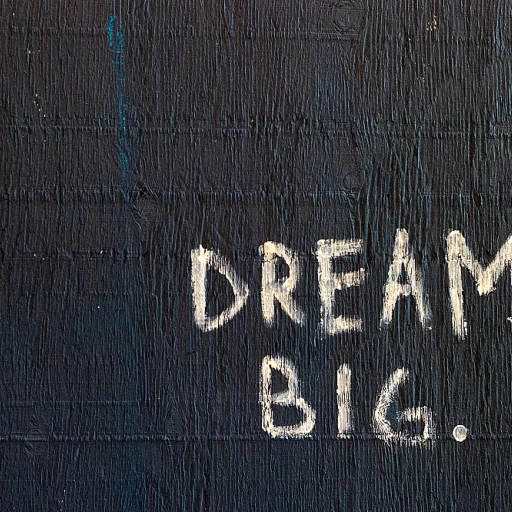Understanding Company Culture
Exploring Company Values and Beliefs
When attending a career fair, understanding the culture of a company is vital for ensuring that it aligns with your own work philosophy and values. Company culture can significantly influence not only your day-to-day experience but also your long-term career trajectory. Here are some key questions to ask recruiters that will help you gauge the cultural environment of a potential employer:
- What values does the company prioritize? This question can unveil what principles drive the organization. Listen to see if they match your own values.
- Can you describe a typical day for someone in the open role? Understanding the daily work environment will give you insight into whether the company fosters a collaborative or competitive atmosphere.
- How does the company handle work-life balance? Companies that prioritize a work-life balance often emphasize employee well-being over excessive workloads.
- What are some examples of how the company has supported employee growth? A response here may hint at their commitment to development and if they encourage creativity, innovation, and skill enhancement.
Assessing these questions will help you determine if the company culture is one that supports and aligns with your professional goals. Furthermore, researching how a company’s leadership is developed can also provide valuable insights into what it's like working with them.
Enhancing leadership skills within a supportive company culture can lead to remarkable personal and professional growth.
Evaluating Work Flexibility
Unraveling Work Flexibility Options
One of the pivotal aspects of evaluating whether you align with a company is how well its work flexibility meets your career aspirations and personal life needs. As you engage with recruiters at career fairs, understanding the levels of flexibility offered in different roles can be crucial.
- Inquire about flexible scheduling: This involves understanding if the company allows for flexible work hours or remote work options. Questions about how current employees manage their schedules can also provide insights.
- Remote work culture: In today's digital age, many organizations are adopting remote or hybrid work models. It's worth questioning whether the company supports remote working and what tools they use to facilitate effective communication.
- Adaptability during unprecedented times: With recent global events altering work patterns, companies have had to adapt. Gain clarity on how they have managed during such times and if these changes will be permanent.
- Understand technological support: Know what platforms and technologies the company uses for virtual integration. This can enhance your role effectiveness and helps ensure the organization values technological advancement.
Such detailed questions about work flexibility can significantly shape your job satisfaction and long-term career impact. It ties in closely with understanding company culture and how you're supported by the company's resources. This link to
exploring the language of leadership can offer further insight into aligning your communication style with potential employers.
Growth and Development Opportunities
Exploring Opportunities for Advancement and Skill Development
When attending a career fair, one of the key considerations for evaluating potential job opportunities is understanding how well a company supports its employees’ growth and development. To make the most of the career discussions, consider asking insightful questions that can help you ascertain the company's commitment to fostering professional development.
- Ask about Training and Development Programs: Inquire about the opportunities provided by the company for professional training and development. Understanding whether the organization invests in workshops, courses, or mentorship programs will give you a clearer picture of how they prioritize employee growth.
- Understanding the Career Pathways: You might want to ask recruiters about the typical career progression within the company. Questions like "What career paths are available in this role?" or "How does the organization support career advancement?" can help you map your long-term career aspirations with the company's offerings.
- Assess Opportunities for Skill Enhancement: Inquire whether the company encourages participation in external seminars, conferences, or even online courses. This will give insight into how the company values continual education and skill enhancement.
- Feedback and Performance Evaluation Process: Understanding the feedback and performance evaluation process will help you identify what kind of framework is in place for recognizing and rewarding achievements. Knowing how this process works can also shed light on what skills and experiences are valued by the company and how they might impact your role.
To gain a deeper understanding of how to strategically enhance your personal growth within an organization, consider exploring resources like a
self-leadership workshop. Such resources can provide valuable insights into effective career development strategies and may help you better align your goals with potential employers during career fairs.
By focusing on these areas during your interactions, you'll be better prepared to assess which companies offer the best environments for your career growth and development. When speaking with recruiters, asking these targeted questions will not only help you understand what to expect but will also demonstrate your proactive approach to your career progression.
Assessing Workload Expectations
Managing Responsibilities and Expectations
When attending a career fair, one critical area to delve into is understanding the workload expectations that come with a specific role. Differentiating between manageable and overwhelming responsibilities can play a pivotal role in achieving work-life balance in your aspiring career.
Asking the right questions about this topic during a job fair can help you gain valuable insight into the company culture. For example, asking recruiters about a typical day in the role will give you a sense of daily demands and preparedness required for success. Additionally, questions about peak busy periods can provide context for time management and work intensity.
Consider seeking information on the support systems in place. Questions such as, "What kind of help is available if I find the workload challenging?" allow you to gauge how much assistance you can expect from the organization. Understanding this aspect can highlight whether the company fosters an environment that supports its employees' well-being and productivity.
Furthermore, it is beneficial to discuss the hiring process and how expectations are communicated during the recruitment phase. This will help clarify what employers desire in terms of skills and experiences, ensuring you are fully informed before accepting an open role. Recognizing how a company addresses workload can be instrumental for long-term career satisfaction and success.
Remember, career fairs are an excellent opportunity to engage directly with potential employers and get your questions answered. The more you know about what a position involves, the better prepared you will be to balance your professional and personal life effectively. The insights gathered here can profoundly influence your decision-making process, making sure you choose a working company that aligns with your career goals and personal values.
Company Support Systems
Understanding Support Mechanisms in the Company
When you attend a career fair, understanding the type of support mechanisms the company offers can significantly influence your decision. It’s crucial to determine whether the organization prioritizes a supportive environment, helping employees thrive both in their personal and professional roles.
- Mentorship and Guidance: Ask about mentorship programs within the company. Does the company provide mentors to help new employees integrate into their roles? A mentorship program can be a pivotal part of your career development and can significantly enhance your skills and experiences during the hiring process.
- Health and Wellness Initiatives: Inquire if the company has any health and wellness programs in place. Whether it’s mental health support, gym memberships, or wellness workshops, these initiatives contribute to a healthy work-life balance, aiding employees in becoming more productive over time.
- Employee Assistance Programs (EAPs): These programs help employees deal with personal and professional challenges that might affect their performance. It would be beneficial to find out if potential employers offer EAPs to support their staff in maintaining a balanced lifestyle.
- Flexible Schedules and Work From Home Policies: In today's job market, flexibility is increasingly sought after. You might have explored the flexibility aspect in earlier sections, and it’s worth reiterating. Ensure that the company can accommodate varied schedules if necessary.
- Diversity and Inclusion Efforts: Understanding a company’s commitment to diversity and inclusion can play a significant role in how supported employees feel. Ask questions to uncover how the organization supports all employees, valuing diverse backgrounds and respecting different cultures within the working environment.
Approaching these questions from a detailed perspective will help you establish whether the organization offers a robust support system, which will ultimately impact your long-term career development. Being thorough in these inquiries at career fairs will ensure that you're making an informed decision about whether the company aligns with your expectations for support and development. By doing so, you'll be better equipped to determine if the company is a place where you can see yourself thriving in the long term.
Long-term Career Impact
The Ripple Effects on Future Career Trajectories
When attending a career fair, one crucial aspect to explore is the potential long-term impact of working with the company you're interested in. Asking the right questions can help you understand how your role might influence your future career. This isn't just about immediate job satisfaction, but rather assessing how the position and the organization contribute to your long-term career goals.
As you engage with recruiters, consider these pivotal questions:
- How does the company support professional growth? Understanding the organization's commitment to growth and development opportunities, as well as their support systems, gives you insight into whether the company will invest in your advancement and help build critical skills and experiences that will benefit you in the long term.
- What career paths have previous employees taken after joining the company? This question shines light on typical career trajectories within the company and the potential for career advancement within their ranks. It enables you to evaluate whether the company culture encourages career progression and international mobility.
- What is the company's stance on fostering leadership skills? After understanding the company culture, delve into their approach towards enhancing leadership abilities. This will help you gauge if they value nurturing leadership qualities in their employees, which could be critical to your career development.
Career fairs give you a unique opportunity to have a candid conversation with potential employers about these questions. Doing so allows you to determine if the company's long-term impact aligns with your career aspirations, ensuring you make insightful career decisions. Prioritize asking these insightful questions to shape your career trajectory positively.














